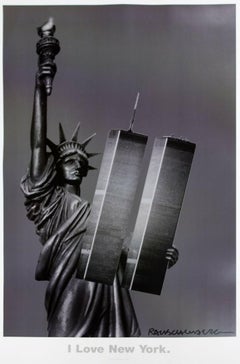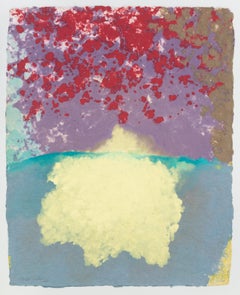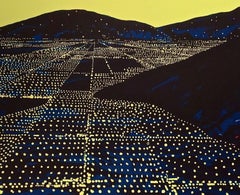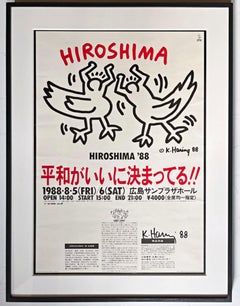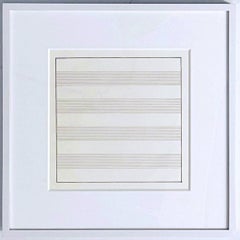Tri-State Area - Abstract Prints
Early 2000s Pop Art Tri-State Area - Abstract Prints
Lithograph, Offset
1980s Color-Field Tri-State Area - Abstract Prints
Acrylic, Handmade Paper, Monotype
1960s Minimalist Tri-State Area - Abstract Prints
Lithograph, Offset
1980s Pop Art Tri-State Area - Abstract Prints
Lithograph
1980s Pop Art Tri-State Area - Abstract Prints
Lithograph, Offset
1990s Minimalist Tri-State Area - Abstract Prints
Vellum, Lithograph
1970s Abstract Geometric Tri-State Area - Abstract Prints
Screen
1960s Pop Art Tri-State Area - Abstract Prints
Plastic, Mixed Media, Screen
Late 20th Century Abstract Tri-State Area - Abstract Prints
Watercolor, Gouache, Etching
1970s Abstract Geometric Tri-State Area - Abstract Prints
Screen
Early 2000s Contemporary Tri-State Area - Abstract Prints
Offset
Late 20th Century Contemporary Tri-State Area - Abstract Prints
Offset
1970s Abstract Geometric Tri-State Area - Abstract Prints
Screen
1970s Abstract Geometric Tri-State Area - Abstract Prints
Screen
1970s Pop Art Tri-State Area - Abstract Prints
Mixed Media, Graphite, Lithograph, Offset
1970s Abstract Expressionist Tri-State Area - Abstract Prints
Screen
1990s Contemporary Tri-State Area - Abstract Prints
Offset
1980s Modern Tri-State Area - Abstract Prints
Lithograph
1990s Pop Art Tri-State Area - Abstract Prints
Lithograph, Offset
1980s Minimalist Tri-State Area - Abstract Prints
Paper, Etching, Aquatint
Late 20th Century Pop Art Tri-State Area - Abstract Prints
Offset
1980s Pop Art Tri-State Area - Abstract Prints
Screen
1980s Abstract Expressionist Tri-State Area - Abstract Prints
Screen
2010s Tri-State Area - Abstract Prints
Photographic Paper
2010s Tri-State Area - Abstract Prints
Photographic Paper
1990s Abstract Expressionist Tri-State Area - Abstract Prints
Lithograph, Offset
2010s Tri-State Area - Abstract Prints
Photographic Paper
1980s Cubist Tri-State Area - Abstract Prints
Offset
1980s Op Art Tri-State Area - Abstract Prints
Screen
Late 20th Century Contemporary Tri-State Area - Abstract Prints
Offset
1980s Abstract Expressionist Tri-State Area - Abstract Prints
Screen
1970s Abstract Geometric Tri-State Area - Abstract Prints
Screen
1980s Abstract Tri-State Area - Abstract Prints
Offset
1980s Surrealist Tri-State Area - Abstract Prints
Etching, Aquatint
1970s Surrealist Tri-State Area - Abstract Prints
Lithograph
1970s Surrealist Tri-State Area - Abstract Prints
Mixed Media, Drypoint, Lithograph, Screen
2010s Tri-State Area - Abstract Prints
Photographic Paper
2010s Pop Art Tri-State Area - Abstract Prints
Digital, Lithograph, Offset
2010s Abstract Tri-State Area - Abstract Prints
Lithograph, Offset
2010s Tri-State Area - Abstract Prints
Photographic Paper
1970s Pop Art Tri-State Area - Abstract Prints
Mixed Media, Permanent Marker, Lithograph, Offset
1990s Contemporary Tri-State Area - Abstract Prints
Lithograph
1970s Surrealist Tri-State Area - Abstract Prints
Mixed Media, Drypoint, Lithograph, Screen
1970s Abstract Geometric Tri-State Area - Abstract Prints
Screen
Early 2000s Pop Art Tri-State Area - Abstract Prints
Oil Crayon, Drypoint, Etching, Offset
1980s Pop Art Tri-State Area - Abstract Prints
Lithograph, Offset
1980s Pop Art Tri-State Area - Abstract Prints
Ink, Lithograph, Offset, Mixed Media
1970s Modern Tri-State Area - Abstract Prints
Lithograph
Early 2000s Contemporary Tri-State Area - Abstract Prints
Cotton, Thread, Paper, Mixed Media, Offset, Screen
1970s Pop Art Tri-State Area - Abstract Prints
Pencil, Graphite, Lithograph, Offset
1980s Conceptual Tri-State Area - Abstract Prints
Screen
1970s Abstract Geometric Tri-State Area - Abstract Prints
Screen
2010s Tri-State Area - Abstract Prints
Photographic Paper
2010s Tri-State Area - Abstract Prints
Photographic Paper
1970s Abstract Expressionist Tri-State Area - Abstract Prints
Lithograph
1980s Abstract Tri-State Area - Abstract Prints
Lithograph
2010s Tri-State Area - Abstract Prints
Photographic Paper
1980s Pop Art Tri-State Area - Abstract Prints
Lithograph, Offset
1980s Pop Art Tri-State Area - Abstract Prints
Lithograph, Offset
1960s Pop Art Tri-State Area - Abstract Prints
Screen
Read More
Joan Mitchell’s Rare, Late-Career Diptych Buzzes with Life
Beneath the inky blackness, the painter’s irrepressible energy electrifies this pair of intaglio prints.
The 1stDibs Guide to Types of Abstract Art
Get to know the key movements and artists who have influenced visual culture for more than a century.
Get to Know the Artists Who Led the Op Art Movement
In the 1960s and '70s, the hypnotic creations of Op artists went mainstream and influenced the look of pop culture.
